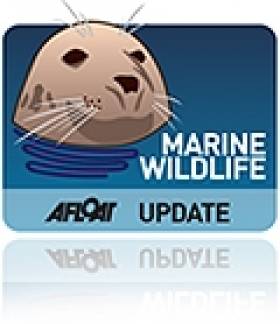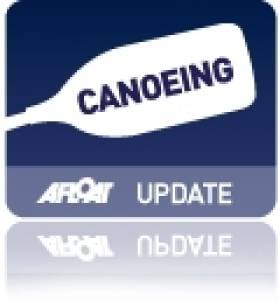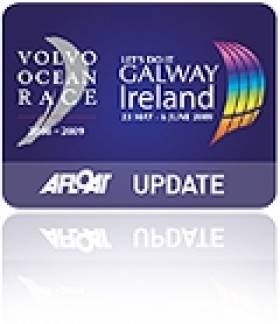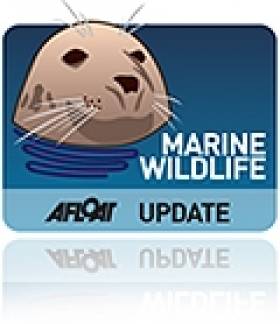Displaying items by tag: GalwayMayo Institute of Technology
'Very Rare' Sighting of Albatross in Irish Skies
#MARINE WILDLIFE - Staff and students from the Galway-Mayo Institute of Technology spotted an black-browed albatross in what was a "very rare" sighting of the bird in Ireland's skies, The Irish Times reports.
The group was on board the State marine research vessel Celtic Explorer off the southwest coast when they witnessed the albatross, also known as a Mollymawk, which is noted for its dark eye stripe.
The black-browed albatross is normally restricted to the Southern Hemisphere, but Birdwatch Ireland's Niall Hatch said it has been spotted from headlands in Ireland in the past.
As previously reported on Afloat.ie, the GMIT group were among a party of 20 scientists from Ireland, Nothern Ireland and Scotland carrying out a study of whales, dolphins, seabirds and plankton in the Atlantic.
Irish Kayaking Intervarsities This Weekend
#KAYAKING - The Galway Advertiser reports that the Galway-Mayo Institute of Technology (GMIT) at Castlebar will host the Irish Kayaking Intervarsities this weekend from today 17 February.
Eighteen colleges will compete in events on the Clydagh river and Lough Lannagh in divisions from whitewater and freestyle to canoe polo and long distance.
“The Kayaking Intervarsities will be a good way to highlight this adventure sports hub and the excellent town centre watersports amenity of Lough Lannagh," said Stephen Hannon of GMIT.
“For spectators the location is very convenient," he added. "People will have an opportunity to see a sport that is sometimes under the radar but at which Ireland has been represented in every Olympics since Munich in 1972.”
The Galway Advertiser has more on the story HERE.
Volvo Ocean Race in Galway Will See Irish Food in Focus
#VOLVO OCEAN RACE - Top chef Maurice Keller was in Abu Dhabi last week to fly the flag for Irish food at the third stopover of the Volvo Ocean Race, Waterford Today reports.
Keller spent a few days away from Waterford's Arlington Lodge to join members of Good Food Ireland, Tourism Ireland and Irish embassy staff for a special 'Ireland Day' at the VOR Village.
The initiative was designed to promote Ireland as a prime tourist destination ahead of this summer's Volvo Ocean Race visit to Galway.
And food will play a major role in efforts to attract visitors to the finish line in Galway this July, according to the Limerick Post.
Foodies from across the mid-west will converge at a 'Foodie Forum' at the Galway-Mayo Institute of Technology on 2 Feburary, where plans to showcase Irish food in the city will be top of the agenda.
“At the launch of the countdown to the Volvo Ocean Race, the Let's Do It Galway team announced the four main pillars of the race next summer – marine, green, innovation and food," said Cáit Noone, head of the Hotel School at GMIT.
"The food pillar will provide Ireland with a global showcase opportunity to share with the world our food experiences and the outstanding locally sourced produce we have to offer.”
IWDG to Host European Cetacean Conference in Galway This March
#MARINE WILDLIFE - The Irish Whale and Dolphin Group (IWDG) will host the 26th annual European Cetacean Society Conference in Galway on the weekend of 24-25 March this year.
The Galway Bay Hotel will be the site for the main conference sessions, while workshops will also be held at the Galway-Mayo Institute of Technology (GMIT).
This year's gathering is being held under the theme 'Communication: Information and Ideas Worth Sharing'. Participants will be exploring communication between marine mammals as well as between marine scientists, and between scientists and the public.
As Ireland's Wildlife reports, the conference "offers a offers a great opportunity to find out more about whales and dolphins, their conservation, the cetacean research being carried out in Europe and to meet the researchers who are working to uncover the mysteries of these most enigmatic of creatures."
Registration is now open for the two-day event. For full details of the conference programme, venues and booking information, visit the European Cetacean Society Conference micro site HERE.
































































